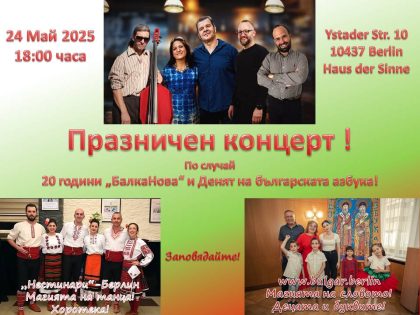.
by Nikolay Mihaylov*
I belong to the generations that grew up in a time when two foreign languages occupied the main niches in education, social contacts and diplomacy – Russian and French. I was always impressed by the strange coincidence of one concept expressed the same way in both languages – право: right /law (justice) – in Russian; droit: right/law (justice) – in French. But what can it has to do with the direction (right) and the law (law, lawmaking, law enforcement, justice)?
At that time, I did not think more deeply about the reason for the phenomenon. I attributed it somewhat to the mutual influence between the two languages, Yevgeny Onegin provided some nuance even if obscure:
„Monsieur l’Abbe, француз убогой,
Чтоб не измучилось дитя,
Учил его всему шутя,
Не докучал моралью строгой,
Слегка за шалости бранил
И в Летний сад гулять водил.“
Until a few months ago…
… I decided to look at how this issue is addressed in the official working languages of the United Nations – Chinese, Arabic, Spanish. It turned out that dui in Chinese, hak in Arabic and correcto in Spanish mean at the same time right as well as law (justice). These findings peaked my curiosity and prompted me to check whether it is the same in other major world languages.
I remembered that in German recht is also right and law (justice). But in Japanese? In Indian Hindi? In Hindi theek is both right and law (justice); I found the same in Japanese – tadashi means both right and law (justice); Portuguese certo is again both right and law (justice)…
But in the languages of the smaller nations, perhaps there is no such coincidence of right and law (justice)? Let see: in Hungarian jobb is both right and law (justice); also the Swahili (haki, close to the Arabic hak); even in the Basque language eskuineko is both right and law (justice)… I checked the languages of many more peoples, and everywhere the phenomenon of the right=law (justice) was confirmed!
By chance – really by accident, not intentionally, when writing the above text I missed the English language. Meanwhile, as a main source, I adopted the most reliable vocabulary – Webster.
According to The Merriam-Webster Dictionary online version right is also:
– as an adjective: acceptable, accurate, actual, adjusted, authentic, certifiable, certified, correct, desirable, direct, fair, faithful, fit, fortunate, full, genuine, good, historical, honest, identifiable, incontestable, incontrovertible, indisputable, indubitable, irrefutable, just, justified, lawful, legal, legitimate, not mistaken, precise, preferable, proper, sound, proven, pure, real, recognizable, righteous, socially straight, strict, substantiated, suitable, sure-enough, true, undeniable, undoubted, unerring, unmistakable, unquestionable, upright, very accurate, veritable, without error; etc.
– as a noun: advantage, birthright, due, entitlement, goodness, prerogative, privilege, responsibility, right, righteousness, rightness, rights, right-thinking, rightist, virtue, virtuousness; etc.
– as an adverb: accurately, aright, completely, correctly, directly, entirely, exactly, fully, legally, precisely, properly, right, rightfully; rightly, totally, wholly; etc.
– as a verb: put right, put to rights, rectify, righten, set right, etc.
– as an exclamation: “All right!”; “Oh, right!”
– as in a phrase: Right at the top.; Right now.; The right man in the right place!; You did right to wait.; I am going right to the end!; etc.
– how children understand right: It’s not right to lie.; I don’t feel right today.; That milk doesn’t smell right.; You guessed right.; You’re not doing it right.; Let’s go right after lunch.; etc.
The Latin also has a word for right: dexter. It also has other meanings such as:
– adjective: dexterous, experienced, happy, favorable, comfortable;
– noun: sign, mark, omen.
Scripture has repeatedly spoken out on the nature of right and right (justice). Here is just a part of one verse:
‘- The heart of the wise inclines to the right…’ (NIV, Ecclesiastes 10:2)
* * *
While the right turned out to be widely represented, practically almost always in a positive light (with one or two exceptions), this is not how things stand with the left. Merriam-Webster shows only a few definitions of left as:
– a noun: left-hander; leftism (the advocacy of radical or ultraliberal policies); liberalism; leftover (useless part);
– an adverb: on or to the left; weak (flabby, unreliable, untrustworthy); worthless;
– an adjective: only in the meaning of direction; side; sinistral.
According to The Oxford Advanced Learner’s Dictionary of Current English, ‘a left-hand complement’ is ‘one that is ambigous , of doubtful sincerity’, and ‘a leftist’ is ‘supporter of socialism or radicalism’.
Latin suggests several meanings of:
– sinister: left side; clumsy; incapable; bad; corrupt; unfourable; miserable; ominous; ill-fated;
– sinistrum: evil.
Where does the word sinister come from in Latin? As the Dictionary explains, it comes from the proper name of Sinis, an isthmian from Corinth. According to Greek mythology, Sinis tied people to two pine trees that he bent down to the ground, then let the trees go, tearing his victims apart. He was killed by his cousin, the hero Theseus.
By the way, the English word sin is from the same origin.
Scripture has spoken out on the nature of the left, too. Let see the second part of the verse of Ecclesiastes 10:2:
‘-…But the heart of the fool inclines to the left.’

As for the political meaning of left, it is “related to a person or group favouring radical, reforming, or socialist views; left periodicals such as Marxism Today”.
* * *
Language – especially in its written form – is among the most conservative human structures. It is no coincidence that one of his great researchers, Nicholas J. Marr, was so fiercely persecuted and stigmatized during late socialism. I remember how strictly care was taken to prevent historical research and publications based on the interpretation of literary sources in order to obtain information, especially with regard to antiques and ancient times (where the direct documentary sources are not available). In Bulgaria, Ianko Iankov broke the shackles of censorship and presented brilliant scientific analyses of the political and legal teachings of the pre-Christian past to the present day, analyzing the abundant literary sources.
The eternal theme – from Eve and Adam’s time to this day – about the presence and struggle between good and evil intrigues and will excite every one of their descendants. On a wonderful evening, I thought about the analogy to the concepts of „right“ and „left„. Of course, I have resorted to the most accessible tool in our day – the Internet – and I was more than surprised!
Were you surprised as well?
–––––––––––––––––––––––––––
* The author Nikolay Mihaylov is a lawyer, teaching Public International Law and Human Rights at Sofia University (1974-1992), a Visiting Scholar at the New York University School of Law (1979-1980).
.






